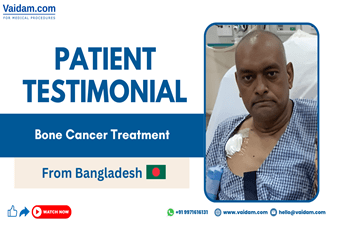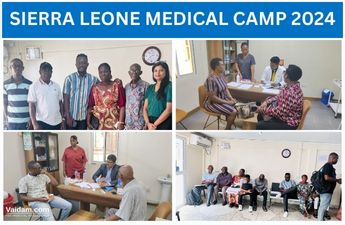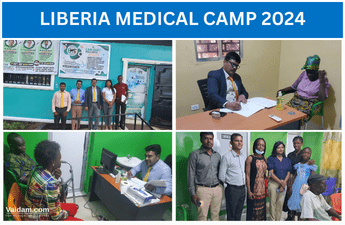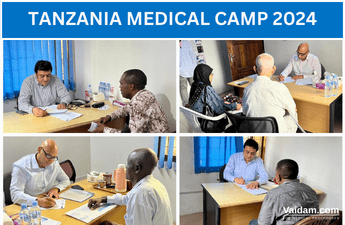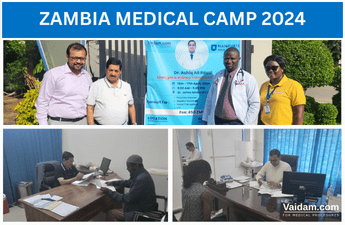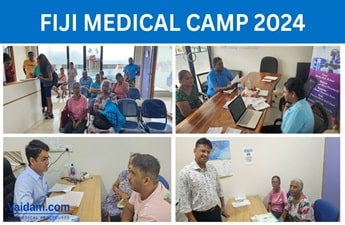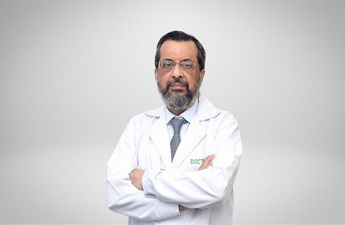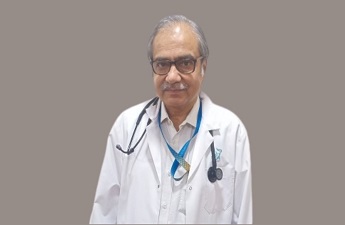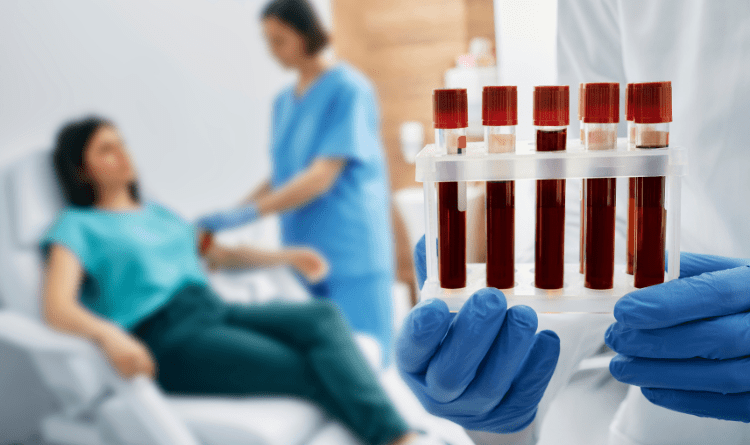
When facing the possibility of general surgery, patients often find themselves in a whirlwind of emotions, ranging from worry to hope. In this critical moment of their healthcare journey, a series of laboratory tests play a pivotal role in ensuring the best possible outcome. These pre-surgical tests are essential for assessing a patient's overall health and serve as the foundation for preparing a personalized surgical plan.
This blog will explain the significance of the tests performed before general surgery.
Get in Touch with Medical Experts
Which Tests Are Commonly Performed Before General Surgery?
Some key diagnostic tests performed before general surgery are explained below in detail.
Abdominal Ultrasound
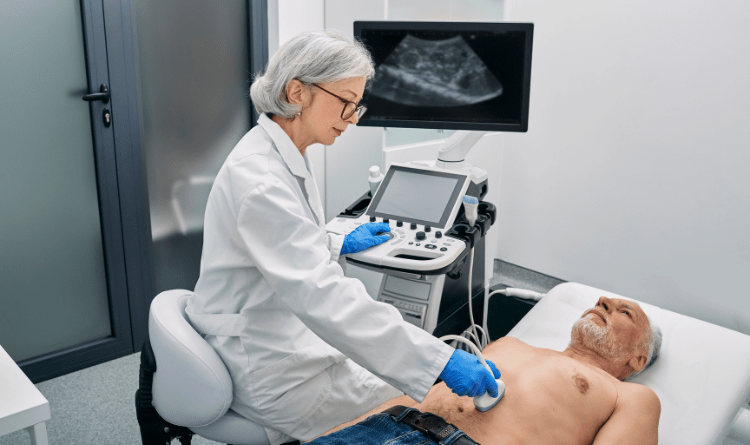
An abdominal ultrasound is a non-invasive procedure. It assesses the organs and structures within the abdomen. This includes the following organs:
- Liver
- Gallbladder
- Pancreas
- Bile ducts
- Spleen
- Abdominal aorta
What Can An Abdominal Ultrasound Detect?
Abdominal ultrasound helps identify the cause of unexplained stomach pain. It can help diagnose conditions, as well, such as:
- Abdominal aortic aneurysm (enlargement of your abdominal aorta)
- Kidney stones
- Kidney cancer
- Bladder stones
- Gallstones
- Cholecystitis (gallbladder inflammation)
- Liver and kidney disease
- Pancreatitis
- Enlarged spleen
- Abdominal cysts or tumors
- Fatty liver disease
- Certain types of cancer (like pancreatic cancer)
Why is Abdominal Ultrasound Performed Before General Surgery?
Abdominal ultrasounds may help guide the doctor during certain procedures. For example:
- During an abdominal biopsy, the doctor may use ultrasound to see where to place the needle in order to remove a small tissue sample.
- Ultrasounds may help the doctor drain fluid from an abscess or cyst.
- Abdominal ultrasound can also be used to examine blood flow inside your abdomen.
Chest X-ray
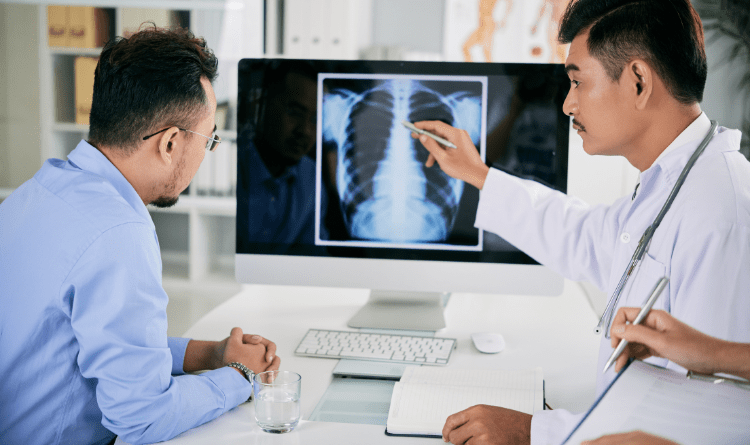
Chest X-rays (formally known as chest radiographs) can detect diseases of the lungs, pleura, heart, major vasculature, mediastinum, chest wall, and diaphragm. In the preoperative setting, chest X-rays are used to assess known chronic medical conditions or to detect previously undiagnosed diseases.
Conditions that are frequently detected in this setting include:
- Chronic obstructive pulmonary disease (COPD)
- Heart failure
- Tuberculosis
- Lung cancers
When a Preoperative Chest X-ray may be Recommended?
A chest x-ray prior to surgery may be recommended only if:
- There are symptoms of heart or lung problems, like pain in the chest, cough, shortness of breath, swollen ankles, fever, recent heart attack, flu, or illness of the lungs or bronchi that is not healing;
- If there are heart or lung problems, even without symptoms
- For patients over 70 years old if they haven't had a chest x-ray in over six months
- If the surgery relates to the heart or the lungs
Computed tomography (CT) Scan of the Abdomen
CT scan of the abdomen is a diagnostic imaging test. It is a fast, painless, non-invasive, and accurate method. CT scans of the abdomen provide more detailed information about abdominal organs and structures as compared to standard X-rays of the abdomen. It provides more information related to injuries and/or diseases of the abdominal organs.
What are Some Common Uses of the Procedure?
It helps detect small bowel, colon, and other internal organ diseases. In emergency situations, it can quickly reveal internal injuries and bleeding, potentially saving lives. Doctors usually use this procedure to diagnose the cause of abdominal pain.
Doctors also use CT scans of the abdomen to diagnose diseases of the internal organs, colon, and small bowel, such as:
- Inflammatory bowel disease (IBDs) - Ulcerative colitis, Crohn's disease, pancreatitis or liver cirrhosis
- Infections - Appendicitis, pyelonephritis, or infected fluid collections, also known as abscesses
- Kidney and bladder stones
- Kidney, liver, pancreas, bladder, and ovarian cancers, and lymphoma
- Injuries to abdominal organs such as the kidneys, spleen, liver, or other internal organs in cases of trauma
- Abdominal aortic aneurysms (AAA)
Complete Blood Count (CBC)
CBC is performed to check the blood cell levels, including red blood cells (RBCs), white blood cells (WBCs), and platelets. Performing a CBC test helps diagnose various medical conditions, such as infections or causes of unknown bleeding.
A CBC is performed before general surgery to:
- Assess abnormalities in the blood that must be addressed before surgery
- Assess hemoglobin levels
- Detect infection
- Monitor for chronic conditions
Liver Function Test (LFTs)
LFTs, also known as hepatic function tests, are blood tests that measure several enzymes and proteins.
LFTs include the following tests:
- Aspartate transaminase (AST)
- Alkaline phosphatase (ALP)
- Bilirubin
- Gamma-glutamyl transferase (GGT)
The results of these tests reflect how well the liver is functioning. These tests are also used to diagnose and monitor disease, infection, and liver injury.
Kidney Function Test (KFTs)
KFTs are simple blood and urine tests that help identify problems with your kidney. You may also need KFTs if you have other conditions that can harm the kidneys, such as high blood pressure or diabetes. They can help doctors monitor these conditions.
What are the Types of KFTs?
To test your kidney function, the doctor will order tests that estimate your glomerular filtration rate (GFR). Your GFR tells the doctor how quickly your kidneys are clearing waste from the body.
- Urinalysis: A urinalysis screens for protein and blood in the urine.
- Serum creatinine test: This test examines whether creatinine is building up in your blood. A high level of creatinine may suggest a kidney problem.
- Blood urea nitrogen (BUN): It checks for waste products in the blood and measures the amount of nitrogen in the blood.
- Estimated GFR: It estimates how well your kidneys are filtering waste.
Why are LFTs and KFTs Performed Before General Surgery?
LFTs are commonly performed before general surgery for several important reasons:
- Assessing overall health: Abnormal results in these tests can signal underlying health issues that need to be addressed before surgery. For example, liver or kidney dysfunction may increase the risks associated with surgery.
- Anesthesia safety: General anesthesia is a standard part of most surgical procedures. LFTs and KFTs help anesthesiologists determine the appropriate type and dosage of anesthesia to use, considering how well the liver and kidneys can process and eliminate anesthesia drugs.
- Medication compatibility: The liver and kidneys play vital roles in metabolizing and excreting medications. Abnormal liver or kidney function can affect how the body processes drugs, potentially leading to medication interactions or complications during and after surgery. Adjustments to medication regimens may be necessary based on these test results.
- Fluid and electrolyte balance: KFTs assess how well the kidneys filter blood and maintain the body's fluid and electrolyte balance. Proper fluid and electrolyte balance are essential for a patient's well-being during surgery and recovery.
- Detection of underlying conditions: Abnormal LFT and KFT results may suggest the presence of underlying medical conditions. These include liver disease, kidney disease, or diabetes. Identifying these conditions before surgery allows disease management and reduces the risk of complications.
- Surgical risk assessment: Surgeons use the results of these tests to assess a patient's surgical risk. Depending on the severity of any liver or kidney dysfunction, they may modify the surgical approach or timing to minimize risks.
LFTs and KFTs are essential components of the pre-surgical evaluation process. They help ensure the safety and success of general surgery by providing valuable information about a patient's overall health, medication compatibility, and potential risks.
By addressing any issues revealed by these tests before surgery, healthcare providers can optimize the surgical experience and enhance the patient's chances of a smooth recovery.
In Short
In general surgery, these tests are the navigators of surgical precision and the keys to achieving optimal outcomes. A comprehensive understanding of a patient's health before they enter the operating room is crucial for surgical excellence. These tests provide more informed decisions, reduced risks, and a healthier and happier post-operative journey.


